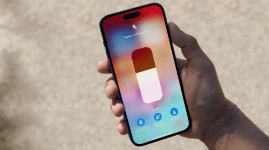What is a VPN? Virtual Private Networks explained
Getting a VPN can help you protect yourself online and view content you otherwise wouldn't be able to

VPNs are virtual private networks. They act as a protective layer between you and the internet. While they won’t stop you from downloading malware or avert you from giving your passwords to a scammer, they can protect you from other nasties.
And let you access content and websites that would typically not be accessible to someone in your country or location – from streaming services to sports events.
How do they work, what can you do with one and how much should you pay for a VPN? We’re going to answer all those questions.
What are VPNs used for?
A VPN can be useful in a bunch of situations. First off, it can give you access to content you might not normally have access to. Live in the UK? You could use a VPN to gain entry to websites only accessible in the US. Or you could gain access to streaming services only available there, like Hulu. You can even get access to other countries’ streaming service libraries using a VPN.
It’s worth checking whether a specific VPN will work with the service you are after, though, as streaming services tend to blacklist VPN servers.
They can also significantly improve your security and privacy. It stops you from being traced as you move around the internet, which can be a concern when you use public Wi-Fi. Or if you don’t want your internet service provider from checking on what you are downloading.
This also means your service provider won’t be able to throttle your data usage if, for example, its policy is to do so when you perform peer-to-peer downloads. It won’t get you around throttling based on how much you’ve downloaded each month because a VPN isn’t going to obscure that info.
How does a VPN work?
A virtual private network works like a middleman between your computer and the web, re-routing your internet traffic through the VPN company’s servers. And encrypting it so that third parties can’t get their hands on it.
Such networks will let you choose exactly where your data will be routed through — which country it will appear as though you are browsing from. Often there are mobile apps that offer easy control over elements like this. And when on a laptop or PC you’ll either use a web interface or, again, a downloaded application.
What are the downsides?
The two big downsides to VPN usage is that it can significantly reduce your internet download speed, and may increase lag. This is obviously bad if you want to play games online, or downloads lots of data and rely on fast download speeds. That is going to be a problem on free VPNs, less so on good paid-for services.
You’re also then reliant on the VPN’s servers being online. It’s another point of failure, basically. If the VPN server goes down, you’ll lose your internet access unless you reconfigure your internet not to require the VPN to be active.
Which gadgets can use a VPN?
The most obvious types of devices to use with a VPN are PCs, laptops and phones. These will typically have a companion app that will handle the setup process for you. Or they will offer instructions on their websites.
Some smart TV software platforms will let you connect a VPN service too. However, if you want your entire internet presence to be fed through one, you’ll have to set up your router to do so.
Not all routers support this kind of integration, though, and this affects a lot of the routers people actually use — those sent as part of your internet package. You’ll have better luck with third-party routers made by companies like Netgear, Asus and Linksys — these companies know their customers may well want to use a VPN, given how popular they are these days.
Your best bet is to Google whether your router supports it or not. If you have a remotely popular model, someone will have already asked. However, remember this only affects whether you can configure your router for a VPN — you can still use it with your phone or laptop regardless.
How much does it cost?
VPNs range from completely free to upwards of $10/£10 a month, pricing comparable with that of a video or game streaming service. However, unlike those subscriptions, you tend to save a lot of money when you sign up for a longer period.
Some will let you pay for up to two years of access up front, often halving the price, or better.
Can I use a free VPN?
Free VPNs have attracted some bad press over the years. There have been stories about companies selling user data to make money. It’s the classic “if you’re not paying for the product, you are the product” situation.
Some free services are supported by advertising, using a browser plugin or displaying ads in their mobile apps. Or you may simply find that free services are too slow to feel good. Proton VPN says its paid users subsidise the free crowd, but the limited number of free servers is going to get congested, impacting performance. And limited server numbers also mean a limited number of locations in which it can appear as though you are based.
Free services often won’t work if you’re trying to get access to other countries’ movie streaming libraries, with services like Netflix, because the servers end up blacklisted.



